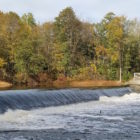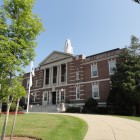The following information was provided by the event organizers:
Is planting trees in city streets and backyards a good way to help manage the damaging effects of climate change? The answer is an emphatic “Yes!,” according to organizers of “Trees and Climate Change in Watertown,” a free informational program that will be held on Saturday, March 23, 10 a.m.-12 noon, at the Watertown Public Library. Sponsored by the Watertown Environment and Energy Efficiency Committee and co-sponsored by Trees for Watertown and Watertown Faces Climate Change, this community event will focus on the important role trees play in keeping a city healthy, and how citizens and Watertown can work together to improve Watertown’s urban forest. Topics will include:
How trees reduce the effects of heat and severe weather and protect our health and environmentWhat trees to plant: tree species that will do best in our changing climateThe state of Watertown’s urban forest, and city plans for its growth and careAdvice on tree-planting and care, including how to get help in organizing a neighborhood tree-planting party, how to join the Citizens Pruning Corps, and how to request a new street tree to be planted by Watertown
Speakers will include:
Chris Hayward, Watertown’s Forestry Supervisor and Tree WardenJennifer Hushaw Shakun, Applied Forestry Scientist at Manomet: “Our Urban Forests in a Warming World”David Meshoulam and teen participants from Trees for Watertown’s Teens for Trees ProgramLibby Shaw, President of Trees for Watertown
There will also be information tables where community members can connect with a variety of groups working on enhancing, protecting and enjoying Watertown’s natural environment. This program will take place in the Watertown Savings Bank Room, Watertown Public Library, 123 Main St, Watertown.



